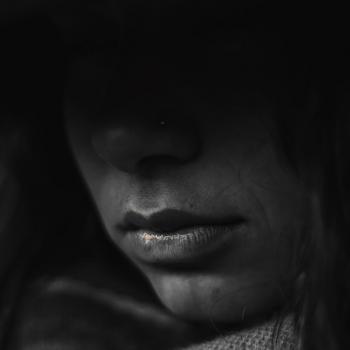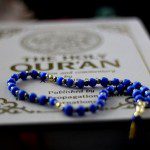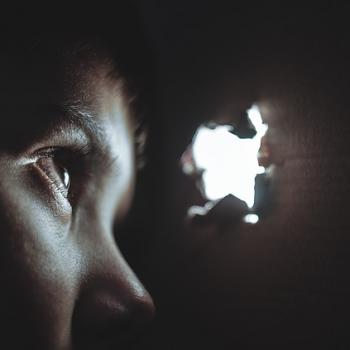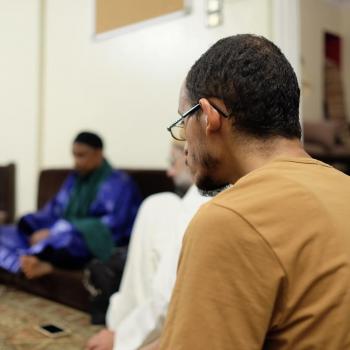This is Day 13 of the #30Days30Writers 2016 Ramadan series.
By Charles M. Turner
Every Ramadan, I open my Quran and begin the month-long task of reading it to completion. It feels routine at first, something I’ve come to expect. Yet, when I open to those first few pages, I’m struck with a sense of dread at one particular part. And, it happens every year.
In the beginning of the second chapter of the Quran, God speaks about the difference between those who are righteous and those who disbeliever. In particular God says:
When it is said to them [the disbelievers], ‘Do not cause corruption throughout the land,’ they respond, ‘We are only putting things right,’ yet truly they are the cause of corruption, though they fail to see it.”
Immediately I ask myself, Is God referring to me?
It’s often I find myself embroiled in some debate regarding the way Muslims think about our religion. There are Muslims who still think women are barred from holding positions of leadership. There are still Muslims who believe gender segregation is a tenet of the faith. There are still Muslims who believe they can force their children into marriages.
Many other ideas are held with an equal lack of scriptural evidence and logic, and these ideas can create toxic consequences. So, I feel compelled to address them.
Of course change is not easy. Patriarchy, elder glorification and scholar worship are deeply embedded in much of the American Muslim community. When confronted with opposition, those who are empowered by these beliefs are fiercely resistant. This type of confrontation usually culminates in angry debates over social media, with Islam being wielded like a sword to cut through any argument that makes them reconsider the beliefs they hold dear.
Needless to say, the end result is not typically positive. People are usually more entrenched in their prior beliefs and little change occurs. Feelings get hurt, people are insulted, and friendships might even deteriorate. It is in the wake of such an episode that this verse comes to mind.
Is the struggle for change, and the painful consequences thereafter, the very corruption to which God is referring? It must seem that everything is fine until someone starts to disturb the peace, calling for change when most people are comfortable with the way things are.
That is until we see what is transpiring in the world around us. Women are still victims of violence throughout the Muslim world. Divorce is becoming commonplace, with women suffering societal isolation in the aftermath. And now we have the Orlando shooter.
While celebrity scholars are working hard to prove Omar Mateen wasn’t “one of us,” I can’t help but wonder who else is being excluded from the Muslim community by its charismatic preachers. They stress that he went clubbing, drank and was possibly gay. And yet the reality is that many young Muslims fall prey to the same societal temptations and struggle with the same difficulties.
Are we to say that all these Muslims are not a part of us?
It is during this discussion that I realize the truth to God’s words. Corruption is not stirring the pot; corruption is allowing the pot to sit and its contents to spoil. Could it be that Mateen harbored hatred against the gay community, both because he struggled with his sexuality and his faith community was so vastly ignorant and intolerant of homosexuals? More importantly, could the Muslim community have provided a space for him to resolve his issues and give him a community of compassion and support?
Not with the intolerance it currently possesses.
As I read the Quran, I try constantly to keep the story of the Prophet Muhammad at the forefront of my mind. The Prophet was a man who shook Meccan society to its core. Islam disrupted everyday life and pitted brothers against fathers as truth and falsehood clashed. And though conversion often left bad feelings among people, the Prophet conducted himself in a way that demanded the respect and awe of even his most fervent enemies.
Though debates may end in raw emotions, it is important that we continue the struggle for righteousness, even when it is against our own communities. For if we abandon the struggle, young girls will still be cast off into forced marriages, homosexuals will miss out of the glad tidings of God’s Mercy, and the community of believers will shrink rather than expand.
And that is truly corruption throughout the land.
Charles M. Turner, an Altmuslim columnist, is a graduate student of Political Science at George Mason University. A convert to Islam, Charles has served in numerous organizations including the Muslim Chaplain Services of Virginia, the Virginia Muslim Coalition for Public Affairs, and the Islamic Center of Virginia. He currently works as a teacher at the Tawheed Prep School, the only Muslim middle and high school in the Richmond area. Charles plans to continue his education in political science with a focus on Islam and Politics and one day teach at a university.












